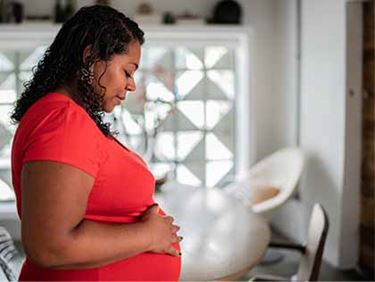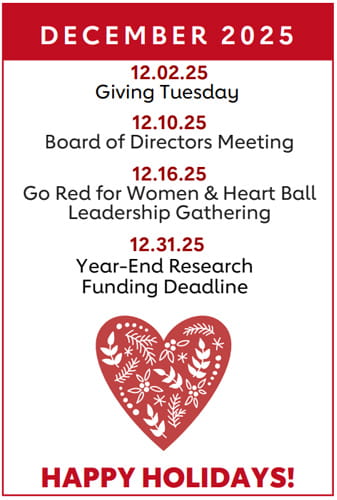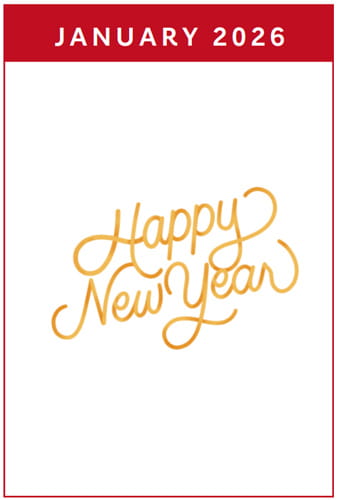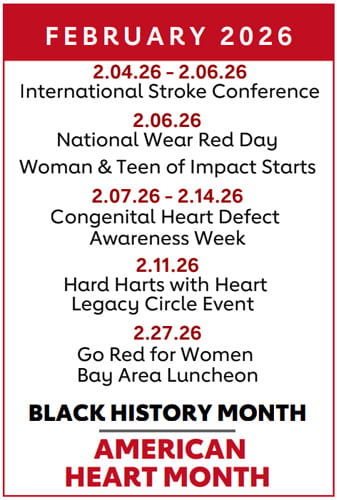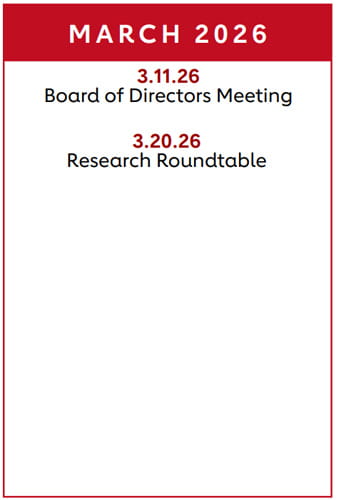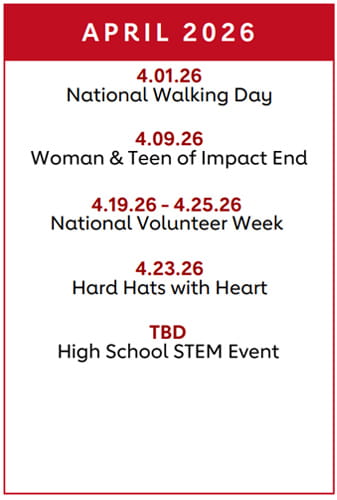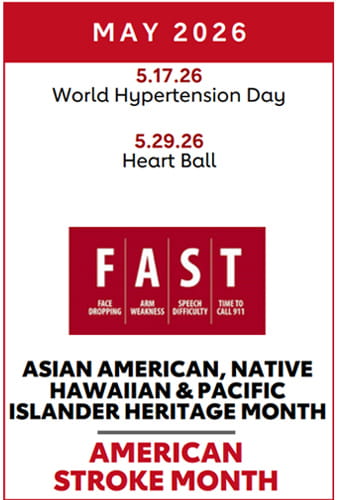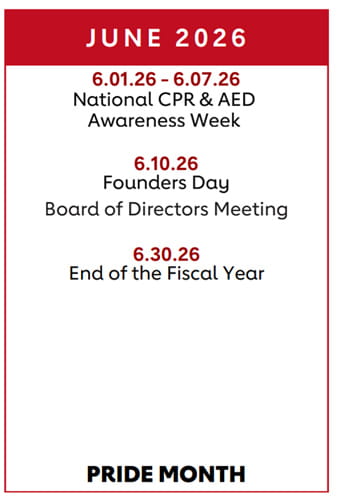 American Heart Association
American Heart Association Northern California

Celebrating 10 years of Go Red BetterU in the Bay Area

Over the past decade, we’ve been dedicated to supporting and empowering women to take charge of their health through every stage of life with the Go Red BetterU program. This women-focused initiative shows how small, simple choices can have a lasting effect on overall health and well-being.
Supporting New Moms in Monitoring Blood Pressure

The American Heart Association is working with the California Health Collaborative to provide blood pressure monitoring resources to high-risk pregnancy clinicians and patients in Fresno County. Equipment including an in-office blood pressure monitor and take-home measurement resources were available to expectant parents to track this critical health number.
Access to Critical Resources Helps Alleviate Food Insecurity
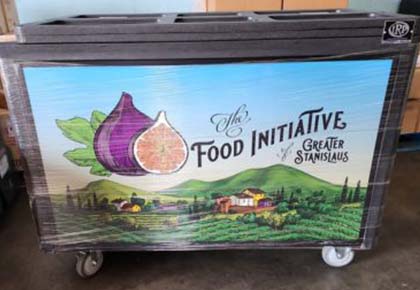
To address food insecurity in Stanislaus County, we worked alongside the Food Initiative of Greater Stanislaus (FIGS) to introduce mobile food coolers, aiding in the distribution of fresh produce to homebound seniors and those who lack access to nutritious food.
Saving Lives Through CPR
Last year we trained more than 330,000 community members in Northern California in the life-saving skill of CPR.
Recipe: Snickerdoodles
Soft, chewy, and rolled in cinnamon, these “sugar” cookies have far less added sugar than the traditional varieties. Perfect for holiday baking.
Noticias en español
La American Heart Association dispone de una página web donde puede acceder a artículos de salud en español sobre estudios e investigaciones recientes, así como de recomendaciones de expertos médicos.
2,500 Lives Lost Daily. You Can Help Change That.

In Your Community
Advocacy for Healthier Californians
For over 40 years, advocacy has been at the heart of our mission. We’re committed to creating a healthier future for everyone. Here’s how we’re making a difference in California and in our local communities:
Prioritizing Public Health
Our legislative and regulatory efforts mitigate risk factors and protect survivors across the country. We champion evidence-based public policies that lead to longer, healthier lives.
In California, we focus on five major policy areas: Tobacco Free, Quality Systems of Care, Healthy Eating, Active Living, and Access to Care.
Thanks to advocacy efforts, Californians took a stand in November of 2022. You voted to uphold the law that ends the sale of flavored tobacco products – including menthol cigarettes. Studies consistently show the reason most young people start using e-cigarettes – and why they get hooked – is because they are sold in the candy, fruit and mint flavors kids like. California now has the nation's strongest protections against the tobacco industry’s business model that markets deadly tobacco products to kids, especially those who live in Black and brown communities.
A Landmark Win for Healthy School Meals
In the fall of 2023, California became the first state in the nation to ensure school meals are healthy by limiting added salt and sugar. Aligned with national and pediatrician recommended guidelines, this move will protect young people from diet-related conditions like heart disease, diabetes, and obesity. The American Heart Association was among the organizations that sponsored Senate Bill 348, championed by Sen. Nancy Skinner.
Standing Strong Against Secondhand Smoke
California Governor Gavin Newsom vetoed AB 374 which would have rolled back secondhand smoke protection in workplaces, including allowing cannabis lounges to become restaurants or venues with live music. This is a significant win to protect the health of California workers from being forced to endure a toxic environment to keep thei jobs.
Join our network of You’re the Cure advocates to continue to improve the health of all Californians.
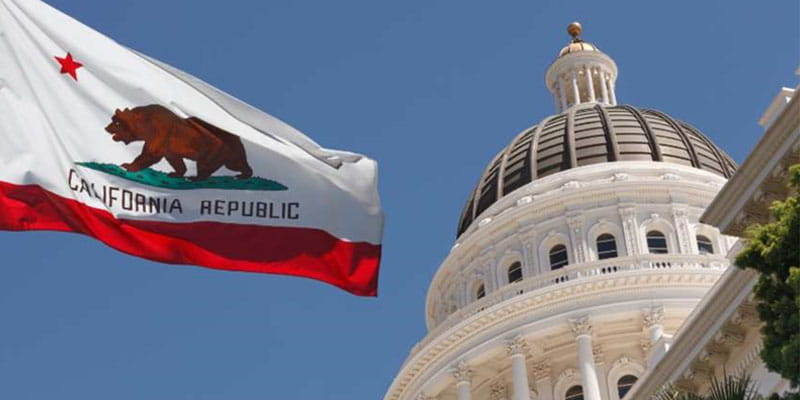
Our Central Valley division serves Fresno, Inyo, Kings, Madera, Mariposa, Merced, Mono and Tulare counties.
The American Heart Association in the Central Valley is working with community collaborators to make an impact in three key areas: supporting residents managing high blood pressure, working to ensure our community has access to the healthy and nutritious foods that sustain health and eliminating the use of tobacco and nicotine products.
By bringing together organizations, sponsors, companies and community partners across the Central Valley, we will save and improve lives. Equity is always at the center of our work, and it will continue to guide all that we do. Thank you for your continued support.
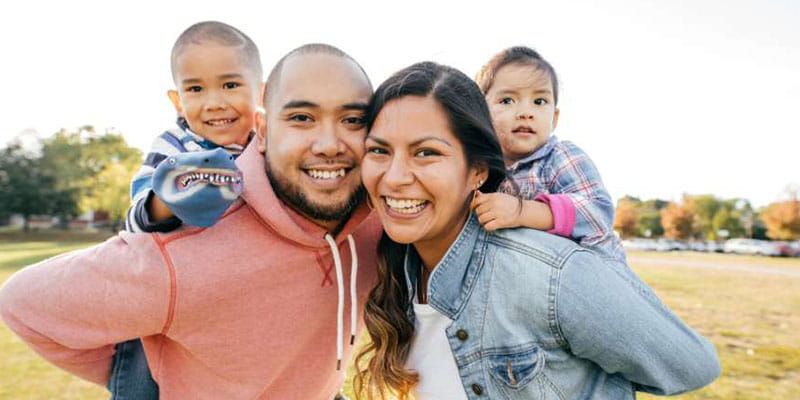
Chair
Steve Matejka
Executive Vice President/Chief Operating Officer
Valley Strong Credit Union
William F. Baker, MD, FACP
Internal Medicine
Centric Health
Didra Cantu, MPA-HCM
Director of Quality and Risk
Encompass Health
Rehabilitation Hospital of Bakersfield
Stacy Ferreira
Community Volunteer
Bonnie Her, MD
Family Medicine Physician
Community Medical Providers
Ken Keller
President and CEO
Bakersfield Memorial Hospital
Lisa Kreber, Ph D., CBIS
Director of Operations
Adventist Health Bakersfield
Felice Lin, MD
Cardiologist
University Cardiovascular Center
Luckvinder Malhi
VP of Operations
Fresno Heart and Surgical Hospital
Jared Salvo, DO
Cardiologist
Central Cardiology Medical Center
Sarabjeet Singh, MD
Interventional Cardiologist
Centric Health
Vivian Torio, DO
Adult and Family Medicine
Kaiser Permanente
Rachel Yankey, MD
Physician
Saint Agnes Center Physicians
Bringing Validated Blood Pressure Cuffs to Oakland Residents
In the heart of the Greater Bay Area, a powerful alliance is underway. The American Heart Association in collaboration with West Oakland Health, whose clinical sites include West Oakland Health Center, East Oakland Health Center, and AJ Thomas Medical Center are joining forces to make it easier for thousands of under-resourced Oakland residents to manage their high blood pressure.
A validated blood pressure device procurement policy was adopted and implemented by the Population Health Program Manager for West Oakland Health on October 14, 2022. This policy will ensure all blood pressure devices provided to patients, donated to, or purchased by West Oakland Health, are clinically validated according to a recognized validated device list such as the US Blood Pressure Validated Device Listing, the British and Irish Hypertension Society, or Stride BP.
Addressing hypertension in West and East Oakland is vital to the mission of the American Heart Association and West Oakland Health as residents of both neighborhoods have been highly impacted by divestment and gentrification over the years due to structural racism. Patients living in these neighborhoods face challenges including violence, lack of nutrition security, and poor public transit for accessing prescription medications, all of which impacts their ability to manage their hypertension.
Our Greater Bay Area division serves Alameda, Contra Costa, Del Norte, Humboldt, Lake, Marin, Monterey, Napa, San Benito, San Francisco, San Luis Obispo, San Mateo, Santa Clara, Santa Cruz, Solano and Sonoma counties.
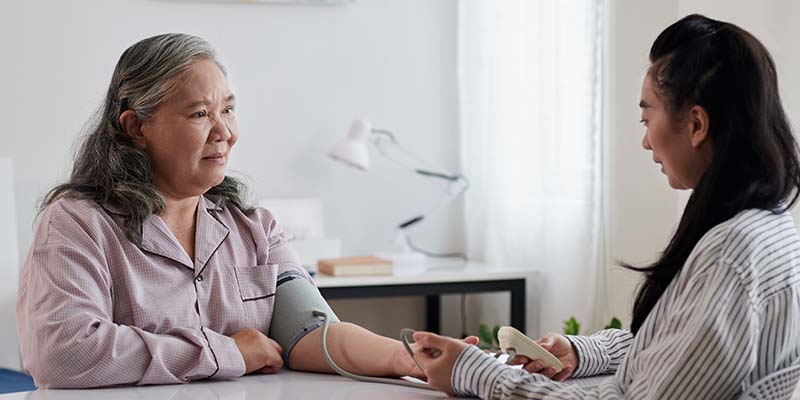
President
Nicole Rosendale, MD
Assistant Professor of Neurology
University of California, San Francisco
Chair
Jacqueline Shreibati, MD
Head of Clinical, Platforms & Devices Division
Google
Leadership Development Chair
Stella Low
Immediate Past Chair
Chief Communications Officer
Snowflake
President-Elect
Fatima Rodriguez, MD
Associate Professor, Cardiovascular Medicine
Stanford University School of Medicine
Giving Society Ambassador
Sean M. Wu, MD
Professor of Medicine, Cardiovascular Medicine
Stanford University School of Medicine
Members at Large:
Huma Abbasi
General Manager Health and Medical
Chevron Corporation
Robert Chatwani
President & General Manager, Growth
DocuSign
Katharine Sears Edwards, PhD
Clinical Assistant Professor
Medicine - Cardiovascular Medicine
Stanford University
Maarten Lansberg, MD, PhD
Professor of Neurology & Neurological Sciences
Stanford University School of Medicine
Justin C. Lee, MD, FACC
General Cardiologist
Stanford Medicine - University Medical Partners Global Faculty
Stanford Center for Asian Health Research and Education
John Maa, MD
General Surgeon
Marin General Hospital
KT Moore
Vice President Corporate Marketing
Cadence Design Systems
Henry Nutt, III
Preconstruction Executive
Southland Industries
Kristin L. O’Carroll
Litigation Associate
Greenberg Traurig LLP
Erika Simpson-Akpawu, MPH
Consultant
Health Scope Consulting
David B. Vliet, MBA
CEO and Principal
VlietHealth, LLC
Melissa Welch, MD, MPH
Chief Medical Officer
Sprinter Health
Joseph C. Wu, MD, PhD
Director Stanford Cardiovascular Institute & Professor of Cardiovascular Medicine & Radiology
Stanford University School of Medicine
Our Greater Valley division serves Alpine, Amador, Butte, Calaveras, Colusa, El Dorado, Glenn, Lassen, Modoc, Nevada, Placer, Plumas, Sacramento, San Joaquin, Shasta, Sierra, Siskiyou, Stanislaus, Sutter, Tehama, Trinity, Tuolumne, Yolo and Yuba counties.
The American Heart Association is committed to driving equitable health impact in the Sacramento Valley through five key priority areas: women, COVID19, tobacco and vaping, patients and healthy living through nutrition and mental well-being. Equity is always at the center of our work, and it will continue to guide all that we do. Through our focus on these key impact areas, we can improve the health and well-being of our community while saving and improving countless lives.
People are counting on us as never before. Together, we will drive change, and we will be relentless. Thank you for your continued support.

Chairman of the Board
Chris Hoffman
Superintendent
Elk Grove Unified School District
President
Dr. Janine Bera
Chief Medical Officer
WellSpace Health
Khuram Arif MD, MBA, CPE, FAHM
Chief Medical Officer
Western Health Advantage
Brian Conner
Partner
Moss Adams
Lorraine Rinker
Community Member
Dr. Kathy Hart
Community Member
Phyllis Baltz
President
Methodist Hospital
Dignity Health
Peter Miles, M.D.
Physician-in-Chief
Kaiser Permanente
Reetu Sharma, M.D.
Sutter Health
Melissa Bassanelli
Superintendent
San Juan Unified School District
Cathrine Misquitta
VP, Quality Management
HealthNet
Alan Shatzel, D.O.
CEO
Mercy Medical Group
Dignity Health
Jita Buño
Associate Chief Operating Officer
UC Davis Medical Center
Dr. Kwan Ng
Director of Vascular Neurology
UC Davis Health
Chrystal Welch
Community Member
Contact Us
Greater Bay Area
By appointment
1111 Broadway
Ste 1360
Oakland, CA 94607
Phone: (510) 903-4050
Central Valley
For Mail Only
5251 California Avenue, Suite 230
Irvine, CA 92617
Phone: (559) 650-4010
Sacramento, Stockton and Modesto
For Mail Only
ATTN: Please include a person or event name
1111 Broadway Suite 1360
Oakland, CA 94607
Phone: (916) 446-6505

Heart and Stroke News
Find science-based stories about heart and brain health and inspiring survivor profiles from American Heart Association News.







